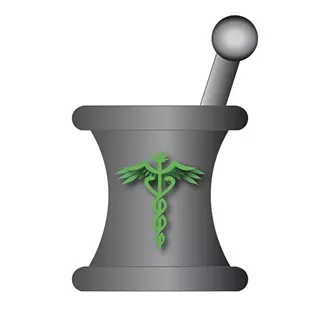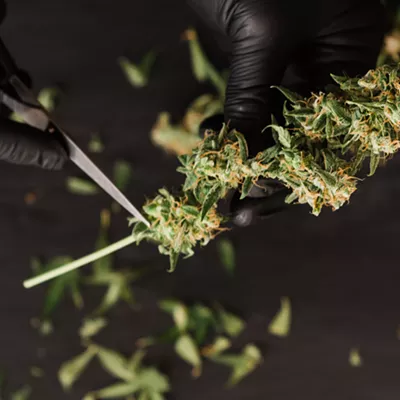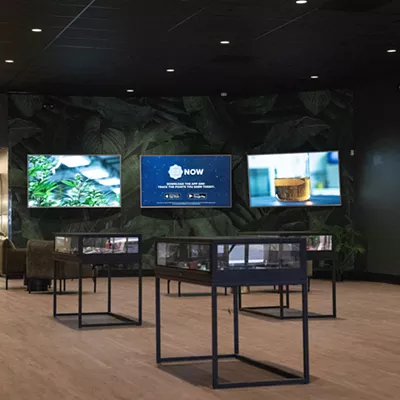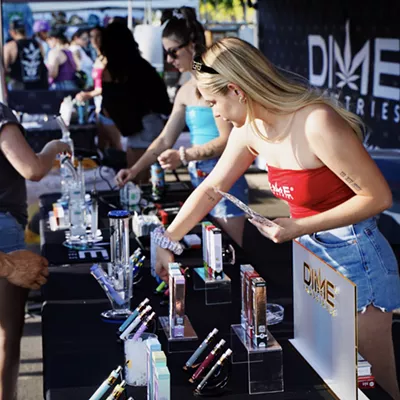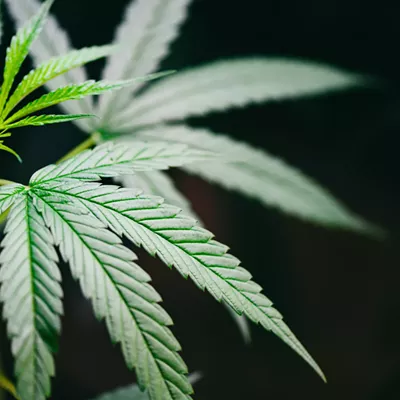Teens shouldn't smoke marijuana, but they do.
And now that we have medical marijuana, it behooves us to find ways to keep the stuff out of the greedy little hands of our youth (if you've had teenagers, you know they have greedy little hands) in the same way that we keep them from picking pills out of the Valium bottle.
Last week, the Pima County-Tucson Commission on Addiction Prevention and Treatment (www.commissiononaddiction.org) hosted a panel discussion that included, among other things, some talk about medical marijuana. So I went to the forum.
It was like walking into the lion's den.
I felt a little naked in there among all of the medical-marijuana naysayers, and the prim-and-proper ladies in coordinated business suits and Pima County-Tucson Commission on Addiction Prevention and Treatment nametags.
Of course, I didn't expect a marijuana-friendly crowd.
A teen in the audience raised the topic of marijuana, asking the panel members how they think the new medical-marijuana paradigm would affect teens. The discussion turned to availability and access.
Ward 2 City Councilmember Paul Cunningham, who is currently running to retain his seat, said he worries about the secondary market that the program creates. He fears enterprising patients will divert the 2.5 ounces they can buy every two weeks.
"That's a lot of weed," he said.
Cunningham thinks the number of teens who have tried marijuana—which lags about 20 percentage points behind the number who have tried alcohol—will rise with the new availability.
Richard Elías, who represents District 5 on the Pima County Board of Supervisors, agreed the new law will increase availability. But he said he accepts the unintended consequences, which are not uncommon with any good law. If medical marijuana had been available to ease his mother's pain as she died of diabetes, he would have tried it, he said.
"And I wouldn't have been ashamed of it," he said.
Tucson Police Lt. Mike Pryor, who isn't running for anything but represented the department on the panel, ramped up the discussion by implying that the program was going to lead to pot at the playground, so to speak. He emphatically told the seemingly supportive audience that kids' primary source of marijuana is home.
"They aren't getting it from other sixth-graders," he said, citing his own experience as a police officer—while admitting he had no empirical evidence.
Not true, Mike. Since you didn't have any, I looked up some empirical evidence.
Each year for the past 15 or so years, the National Center on Addiction and Substance Abuse at Columbia University has scientifically surveyed teens about drug use. This is the group that famously told the world it was easier for U.S. teens to get pot than alcohol, and that about a quarter of them can get the sticky inside an hour.
Guess what? Teens aren't riding their bikes home to snatch medical marijuana from their parents' stash; they're getting it on the street. The CASA survey showed in 2009 that 24 percent of kids get pot from friends; 13 percent get it at school; and 4 percent from drug-dealers.
How many get marijuana from parents? Just 1 percent.
So, Mike, your observations are way, way off.
Beryl Baker, a Green candidate for City Council in Ward 1, doesn't think the medical pot program, as it's written, will affect teens at all. Mary DeCamp, the Green Party candidate for mayor, is more concerned about teens getting prescription drugs than a comparatively harmless God-given plant, she said.
This last comment drew a decidedly immature, audible scoff and then laughter from a handful of audience members, at least one of whom was wearing the aforementioned prim-and-proper business suit and name tag, and who proceeded to talk behind her hand to the person next to her through the rest of DeCamp's statement.
She didn't interrupt Lt. Pryor's statement.
It seemed to me like most of the people in the room, which was largely occupied by supporters of the hosting commission, had already decided medical marijuana is bad. It didn't feel like an open, honest discussion. It didn't seem like an attempt to talk about how to help teens understand.
It seemed more like a lion's den.

